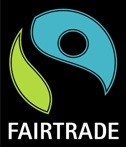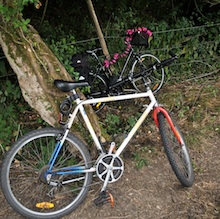| |
|
 |
The organisation of ARC
 |
 |
 |
ARC is a Fairtrade office that makes a point of prioritising organic, fairly traded and local supplies and suppliers - and we are very proud to have won a Gold Award in the March 2012 Bristol Fairtrade awards |
Founder
His Royal Highness The Prince Philip
Chairman of the Trustees
Brian Pilkington
The trustees are drawn from our three founding bodies –
• WWF International and WWF UK
• MOA International, Japan
• The Pilkington Foundation
Secretary of the Trust - Pippa Moss
Staff
Secretary General – Martin Palmer
PA and Events Manager/i> - Pippa Moss
Finance Officer, Education and Water - Mary Bellekom
Director of Communications - Victoria Finlay
Programme Manager, Wildlife - Chantal Elkin
Programme Manager, China - He Yun
ARC is administered by a small team of full- and part-time staff, as well as consultants for specific projects. Our real strength lies in our networks and in the people that each faith has appointed to work on environmental issues.
Ethical Policy:
Here at ARC we aim to practice what we speak about, and we try to be as environmentally considerate as possible.
Purchasing
We try to follow the LOFTY purchasing principles; that wherever possible products should be Local, Organic, Free-range, Traded Fairly and Yummy. Office milk is organic, coffee, tea and sugar are fairtrade and often organic, and our biscuits are organic and fair trade wherever possible. It costs a little more, but it is vital to support farms which are friendly to the earth and do not use pesticides.
When we provide lunch for visitors it is always vegetarian. It is also fair trade and organic where it's possible, and depending on the time of year, it is local. This includes Bath Soft Cheese and Wife of Bath hard cheese, sourced from the cows that graze in the organically managed fields outside our previous offices at Kelston Park outside Bath.
 |
 |
 |
Several ARC staff prefer to cycle to work. |
We have signed up to the Good Food Charter launched in Bristol which says food should be good for people, good for places and good for the planet.
Our business cards and headed paper are printed on recycled card and paper. All our paper and envelopes are recycled, and we also support FSC for any mass-printing we commission.
Recycling and local community etc
We recycle everything possible in the office to minimise waste: plastics, card, paper, metal, batteries, glass and organic waste, which goes straight into the compost outside.
We always try to support local businesses and, in turn, our local community. So we only buy books from our local independent bookshop, stationery from our local independent stationery shop etc.
And since protecting the environment is not just about what we do but rather what we don’t do, we try to switch off the lights and electric chargers when we can and use energy saving light bulbs. We choose eco-branded cleaning products.
Transport
Our offices are in the centre of Bath. Colleagues who can, come by public transport. Those who cannot try and cycle in summer.
When we go to meetings we try to balance affordability with public transport availability. We have cut down our international flights by more than 50 percent since 2000.
|
 |
|
|
|
|
|
 |
June 27, 2011:
Interview with Sir Miles Hunt-Davis
Sir Miles Hunt-Davis became ARC's international president in 2011. ARC's communications director, Victoria Finlay talked to him about his work as British Commander in Nepal and Prince Philip's private secretary for nearly 20 years, and about the importance of engaging religions in conservation issues. |
 |
Interview with Prince Philip
“If you believe in God, which is what Christians are supposed to do, then you should feel a responsibility to care for His Creation.” ARC's founder, the Duke of Edinburgh gives a rare interview about his beliefs in conservation. |
 |
June 12, 2012:
Quakers grow a low-carbon sustainable community
One Quaker Meeting is developing a rooftop herb garden. Another is redesigning its garden using permaculture methods to introduce fruit and nut trees and edible plants. A third runs a food co-operative, providing healthy food as well as cooking workshops to the community. |
 |
 |
|
|

